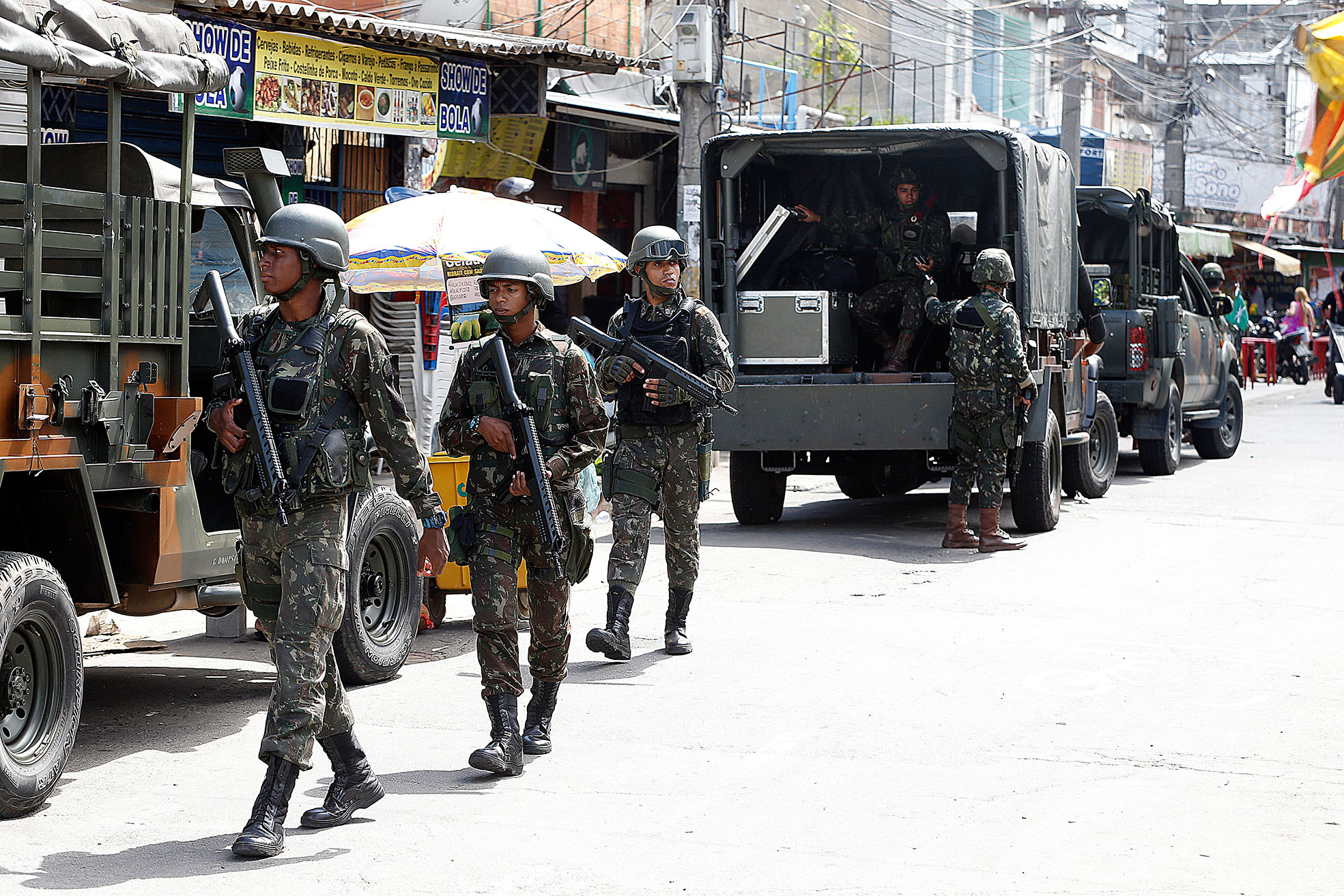At the UN, organisations call for answers to the case of Marielle
In a discussion, during the 39th session of the Human Rights Council, Conectas and Observatório da Intervenção (Intervention Thinktank) criticised the militarisation of security in Rio de Janeiro.
 13/12/2017- Rio de Janeiro – Army carries out operation in the Nova Holanda favela, in the Maré Complex, in the northern region of Rio de Janeiro Photo: Tomaz Silva/Agência Brasil
13/12/2017- Rio de Janeiro – Army carries out operation in the Nova Holanda favela, in the Maré Complex, in the northern region of Rio de Janeiro Photo: Tomaz Silva/Agência Brasil
More than six months after the murder of the Rio de Janeiro born council woman, Marielle Franco and her driver, Anderson Gomes, the crime has still not been solved. The lack of answers from the Brazilian state regarding the execution of Marielle and Anderson and the increase in violence after the introduction of military-style federal intervention to address public security in Rio de Janeiro was questioned today, during the 39th session of the UN Human Rights Council, in Geneva.
In a joint statement by Conectas and Observatório da Intervenção, the Data Coordinator at the Thinktank, Pablo Nunes, criticised the delay in investigations into the case of Marielle: “The authorities have failed to identify who killed Marielle Franco and why”. The council woman and her driver were executed on 14 March 2018, approximately one month after the publication of the decree to introduce federal intervention to address public security in Rio de Janeiro.
The text also presents data showing that, since the publication of the decree, in March this year, “916 people have been killed by the Rio de Janeiro security forces, an increase of 49% in comparison with the same period last year”. Organisations stress that, in the last ten years, Brazil has authorised the use of military force 44 times, by means of Guarantee of Law and Order decrees.
Read more
According to these organisations, the continuous use of force has led to an increase in human rights violations. In this scenario, Conectas and Observatório da Intervenção requested Brazil “suspend the use of military force in public security operations and start to implement more efficient public policies, based on intelligence, prevention and the reform of the ‘war on drugs’ model”.
Event to discuss militarisation and the case of Marielle
Next Friday, 20, an event to be held in parallel to the Council session will discuss the “Militarisation of public security: federal intervention in Rio de Janeiro, extrajudicial executions and risks for human rights defenders”. The debate will be held by Amnesty International, Conectas, Justiça Global, Redes da Maré, Observatório da Intervenção. Monica Benício, Marielle Franco’s partner will also be participating. Online transmission will be via the Red Internacional de Derechos Humanos Facebook page.






